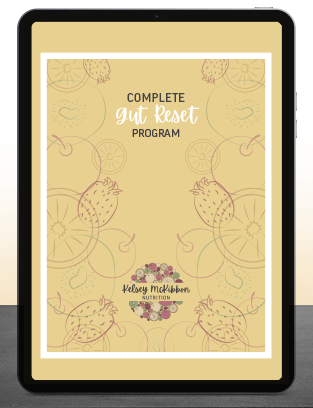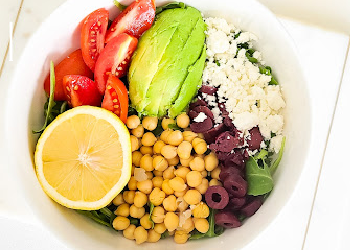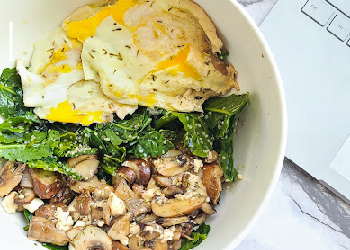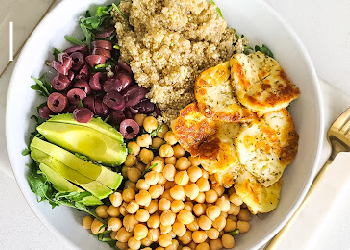Discussing 5 Different Types of Healthy Diets!
Learn about the 5 different types of healthy diets and food groups associated with each diet.
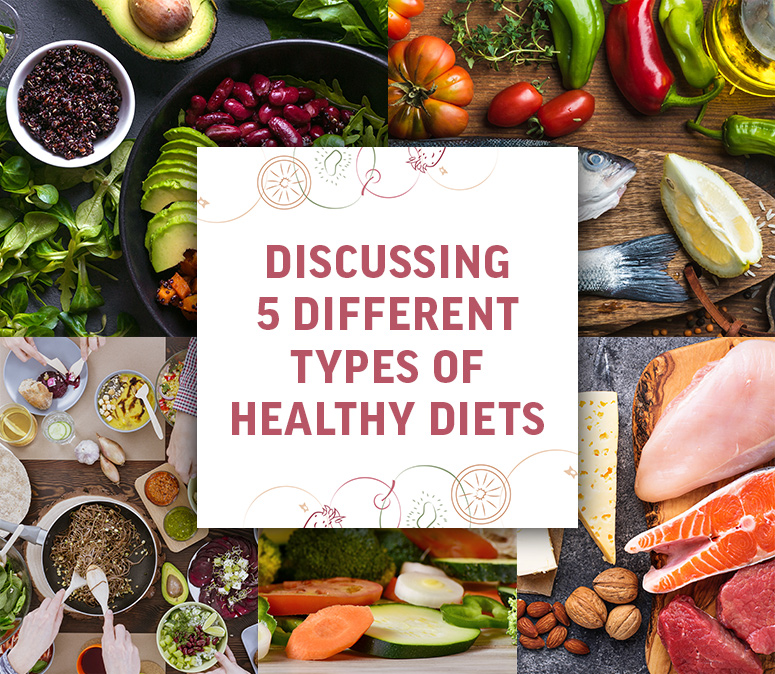
I find that many people are often very curious about different types of diets and eating methods, what is healthy, what isn’t and how we can optimize our very own to maximize health benefits! Below are explanations of 5 types of common healthy diets found in our society that have many benefits as well as possible downfalls!
It’s extremely beneficial to be doing your own research in order to make sure that you find a diet that fits within your ethical and moral values along with your nutritional needs and requirements in order to live a healthy fulfilling life
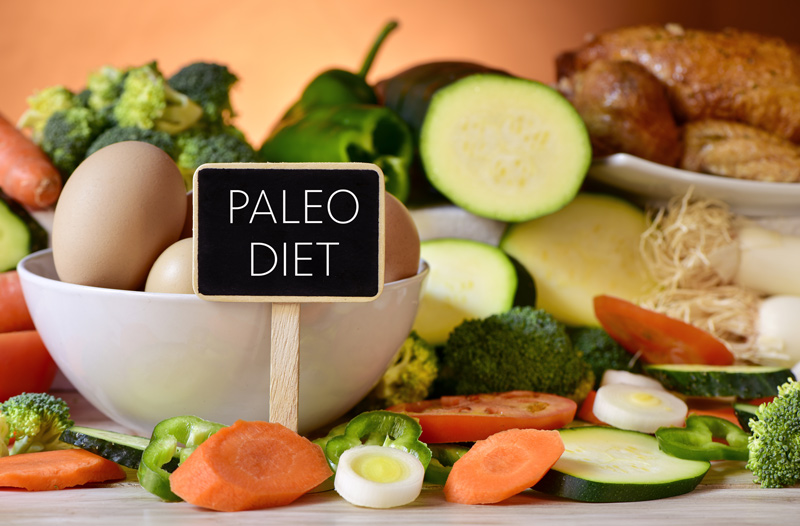
A Paleo Diet can be followed by eating whole, unprocessed foods like meat, vegetables, seafood, eggs, fruits, nuts, potatoes, healthy fats, and spices. All in all, Paleo Diet consists of grass-fed and organic products.
Paleo Diet:
This way of eating resembles the ‘whole food’ diet our ancestors ate as ‘hunter-gatherers’ hundreds of years ago. Bringing things back to the basics and not overthinking anything in specific. Our ancestors ate what they could hunt or gather at any given time, which meant they may have gone long periods of time without certain foods such as fruits or meats while surviving on nuts and vegetables.
There have been many studies that suggest eating a Paleo diet without calorie counting can lead to decreased rates of many chronic ailments and natural weight loss. Modified versions can be applied to those wishing to eat closer to our roots, such as occasionally adding in quality wine, dark chocolate, and some gluten-free grains such as rice and pseudo-grains such as quinoa, without the feeling of straying too far from the rules.
I’ve ALWAYS believed in a whole food diet and have followed these philosophies for many years. I feel that if we source quality foods we can get most of what we need nutrition-wise from our diet.
What to eat:
- Meats
- Fish
- Vegetables
- Eggs
- Fruits
- Nuts
- Seeds,
- quality) fats and oils
- Herbs and Spices
What to avoid:
- Most dairy products
- Processed foods and sugars
- Sauces
- Grains
- Artificial sweeteners
- Legumes
- (poor quality) fats such as vegetable oils and margarine
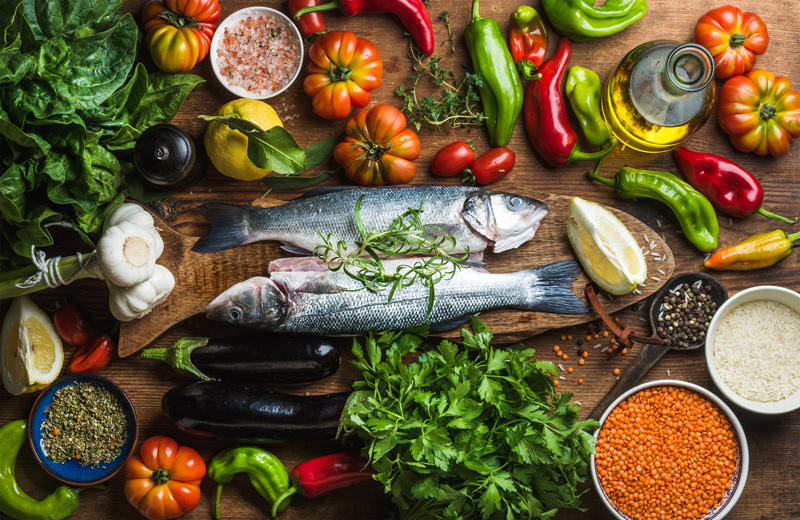
The Mediterranean Diet’s health benefits may include: lowering the risk of cardiovascular disease, improving sleep quality, weight loss. Long-term and sustainable dietary changes will need to do made to follow the Mediterranean diet.
Mediterranian Diet:
It’s no wonder this is my go-to consistent diet considering it originated from 2 of my favourite European countries, Italy and Greece. This (mostly) whole food diet is high in quality fats and vegetables and VERY low in anything processed.
When looking at the population in these countries of origin, the fatality and illness rates linked to heart attacks, stroke, and type 2 diabetes are astronomically lower, especially in areas away from central cities. This all being said, these health benefits can and will apply to those who take on these Mediterranean eating guidelines as their everyday eating habits.
What to eat:
- Fish
- Seafood
- Fruits
- Vegetables
- Potato
- Healthy fats such as olive oil
- nuts and seeds
- Legumes
- Whole grains
- Herbs and spices
Within moderation:
Poultry, eggs, cheese, yogurts, and (rarely) Red meat
What to avoid:
Processed foods/ Sugars/ Meats/ Oils and fats, Refined grains
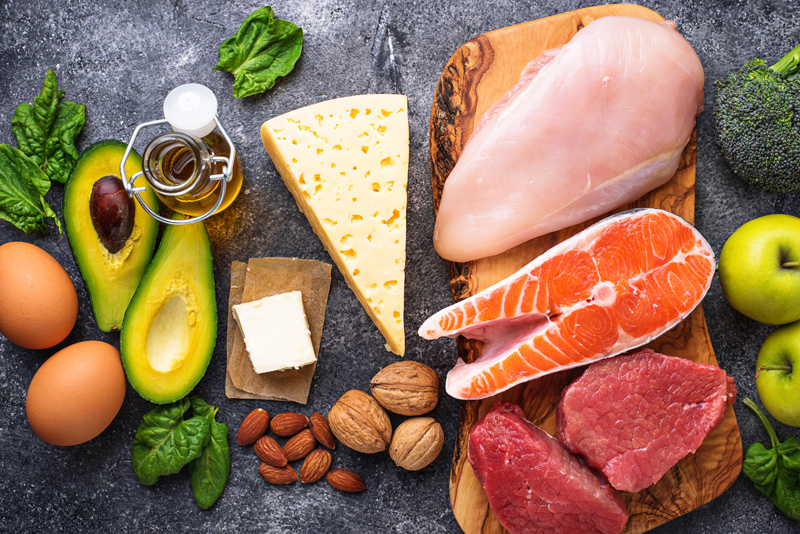
Some of the health benefits of keto include brain injuries, Alzheimer’s disease, epilepsy, cancer, heart disease, Parkinson’s disease, polycystic ovary syndrome.
Ketogenic Diet:
This trendy high-fat, low-carb diet is definitely a force to be reckoned with including many health benefits when followed with high standards. Similar to the Atkins diet, following Keto principles puts your body into ‘Ketosis’ a state in which you burn ketones as fuel (stored fat) rather than glycogen (stored carbohydrates).
In turn, this has many cognitive benefits and will keep blood sugar stable and insulin from spiking which can decrease the chances of hypoglycemia, type 2 diabetes, obesity/weight gain and more.
Ketogenic diets have also been implemented while treating Epilepsy, certain Cancers, Autism, Parkinson’s, and Alzheimer’s.
The unfortunate part of this diet is the fact that many people use this as an excuse to consume high amounts of poor quality fats and proteins such as conventional red meat, bacon, cheese in excess, etc. This alone can increase cholesterol and create an inflammatory state in the body which can heighten the risk for heart disease, stroke, and many other ailments. Moreover, this diet limits some vegetables and most fruit, which can create issues in itself with limiting quality essential nutrients and fibre intake.
Therefore, when committing to a high-fat, low-carb diet, make sure that you consider doing thorough research (or reach out to me) and plan out your healthy meals ahead of time while limiting processed fats/ proteins along the way.
What to eat:
All meat and Fish, Eggs, Cheese, Cream, Butter, Nuts and Seeds, Quality oils, Low-carb veggies such as greens, peppers, asparagus, broccoli, etc.
What to avoid:
- All sugars
- Grains and Starches
- All fruit except small amounts of dark berries
- Sauces
- Processed oils
- Root & Tuber vegetables
- Beans
- Legumes
- Alcohol
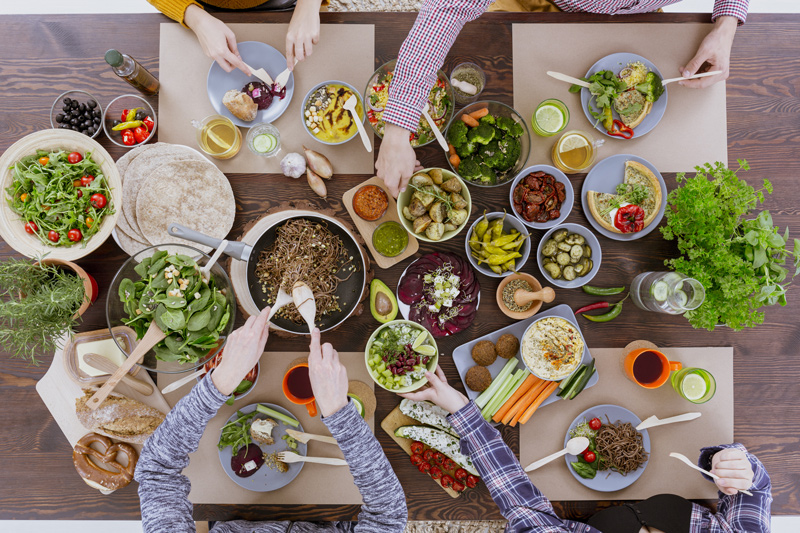
A vegetarian diet should include a mix of grains, fruits, vegetables healthy fats, and proteins.
Vegetarian Diet:
Following a traditional vegetarian diet is considered a very sustainable way to live a healthy lifestyle with unique morals based around zero consumption of animals due to either ethical or health reasons.
People who follow this diet should consume a balanced assortment of healthy vegetables, fruits, nuts and seeds, fats, whole grains along with a moderate amount of animal by-products such as eggs, dairy, honey or gelatin.
Although there aren’t many guidelines around eating vegetarian, people will oftentimes find themselves turning to carbohydrates to fill their plates and bellies in the absence of animal protein. Because most plant-based proteins are not considered ‘complete proteins’ it is encouraged to combine foods that create a ‘full amino acid chain’ resulting in a complete protein.
Another thing to keep in mind that is a common misconception is if something is labelled ‘vegetarian’ that it is automatically healthy. Oftentimes these foods contain unnecessary ingredients and fillers and are high in processed sugars. I would encourage people to continue to consume a full spectrum of whole foods with very little packaged processed foods for maximum health benefits.
The positive environmental impact on not consuming meat is also quite substantial with the lowered greenhouse gas emissions, less land being used to grow crops for animals such as corn and soy. As well as less freshwater needed for factory farming.
Combinations such as:
Whole grains with nuts or seeds, whole grains with beans, beans/ legumes with nuts and seeds, etc, will give you the protein that you need for healthy tissue.
Foods with complete or nearly complete proteins are:
Eggs, Cheese, Yogurt, Quinoa, Hemp hearts, Chia, Spirulina, Buckwheat, Tempeh, Tofu (do not over-consume and make sure to buy organic/non-GMO), Ezekiel bread, edamame. Nutritional yeast, Green Peas
Limit:
Processed foods/ sugars/ sauces and poor-quality fats such as margarine and vegetable oils
What to avoid:
- Meats
- Poultry
- Fish
- Seafood
- Gummies
- Marshmallows
- Jello
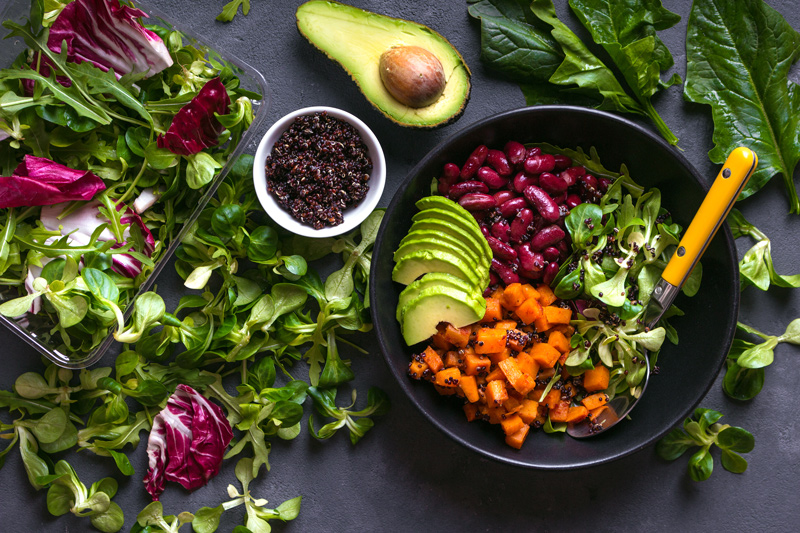
To follow a vegan diet drink plenty of fluids, eat at least 5 portions of a variety of fruits and vegetables every day are a few of the options to choose from.
Vegan Diet:
To follow a vegan diet drink plenty of fluids, eat at least 5 portions of a variety of fruits and vegetables every day are a few of the options to choose from.
Following a strict vegan diet is similar to a vegetarian diet except there is ZERO consumption of any animals or any animal bi-products. Being a Vegan is completely admirable from a moral, ethical, environmental and health standpoint and addresses many ways in which animals are exploited from foods to clothing goods.
Although the morality behind this way of living is wholesome and full-hearted, it may offer and contribute to some long-term health downfalls such as nutrient deficiencies in B12, Iron, Vit D, Omega- 3, Calcium, Iodine, and Zinc.
The good news is that you can supplement with vitamins and minerals found in your health food stores, but should try to get as many nutrients from your whole foods as possible. Following a healthy well balanced Vegan diet also has long-term health benefits by potentially minimizing chances of certain cancers, arthritis, and kidney disease.
Same protein combinations as Vegetarian diet:
Whole grains with nuts or seeds, whole grains with beans, beans/ legumes with nuts and seeds, etc, will give you the protein that you need for healthy tissue.
Foods with complete or nearly complete proteins are:
- Quinoa
- Hemp hearts
- Chia
- Spirulina
- Buckwheat
- Tempeh
- Ezekiel bread
- edamame
- Nutritional yeast
- Green Peas
- Tofu (do not over-consume and make sure you buy organic/ nonGMO)
Limit:
Processed foods/ sugars/ sauces and poor-quality fats such as margarine and vegetable oils.
Avoid:
- All meats
- Poultry
- Fish
- Seafood
- Dairy
- Eggs
- Honey
- Anything with gelatin (variety of candies/ sweets)
- Gummies
- Marshmallows
- Jello
- Any leather goods (made from animal hides)
- Some wines and beers
- Some soy cheese products
Summary
All in all, it is beneficial to research and find out information on the different types of healthy diets. Finding out Which diet will fit your ethical and moral values along with your nutritional needs and requirements. Knowing this valuable information will be the key to your healthy lifestyle.

Kelsey McKibbon CNP, NNCP
Ever since I was a young girl, making health and wellness a top priority has always come to naturally to me. When I started my Clinical Nutrition practice years ago, I knew that by incorporating and focusing on diet and overall nutrition, as well as encompassing and creating new habits in the lifestyle department, that long-lasting, sustainable change could take place and set in a beautiful path to success. I approach everyday life with a balanced mindset and take pride in educating my clients on how to live a healthy and fulfilling life that makes them feel empowered, strong, and mindful.
Related Blogs
Fresh Buddha Power Bowl
This bowl has been a MAJOR staple in my back pocket since I can remember, with loads of healthy fat, fibre, protein and quality carbs (I say quality because I do not consider most processed carbs to be ‘quality)…
Egg Mushroom & Kale Breakfast Bowl
Breaking your fast with a well balanced meal means that you’re giving your body amazing micro and macronutrients in order to thrive throughout the rest of the day!
Savoury Halloumi Protein Power Bowl
This full of flavour power bowl will leave you satiated for hours into the afternoon with its balanced macronutrient profile
